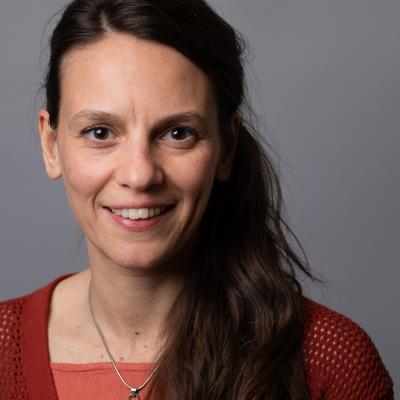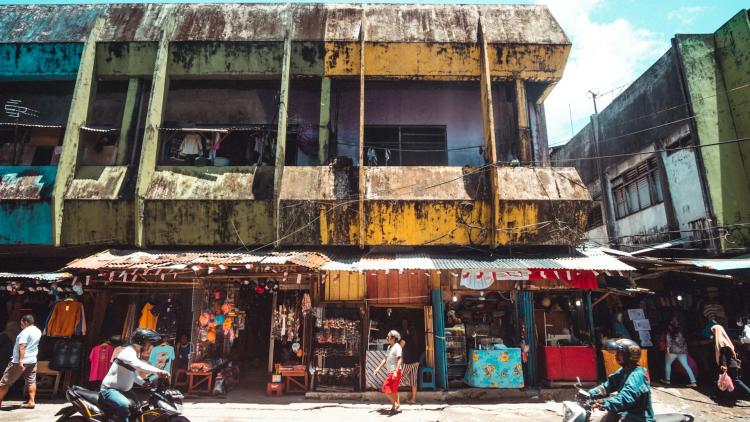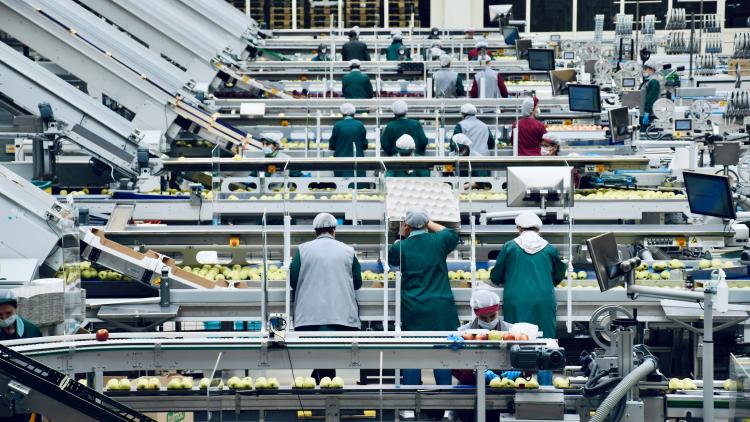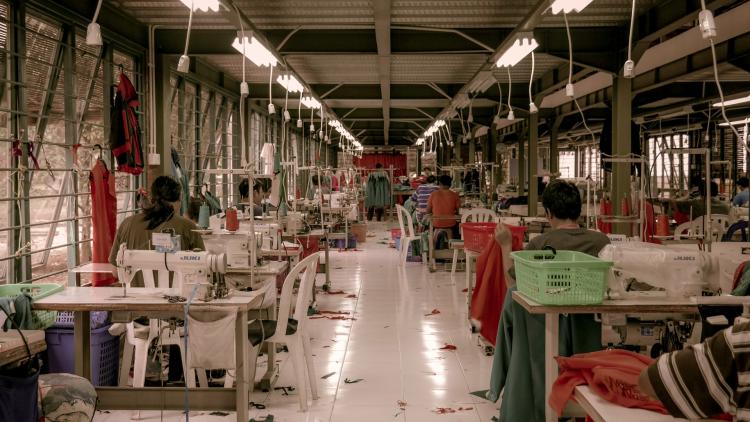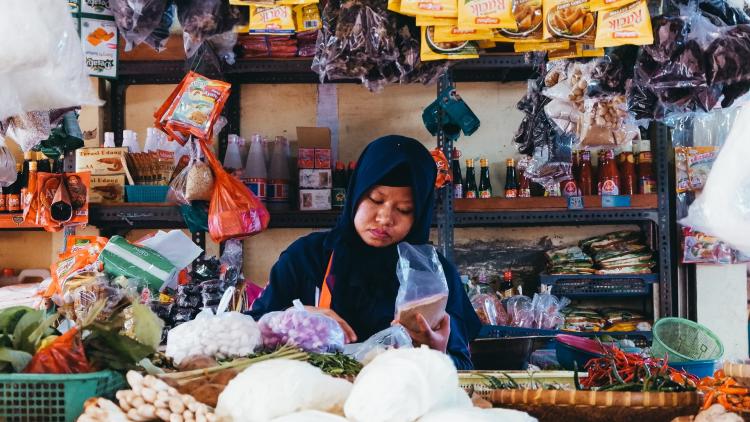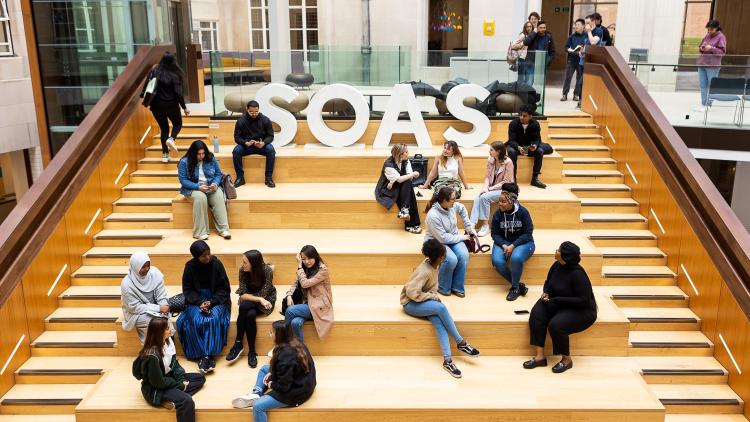SOAS-Wits Joint MPhil/PhD in Applied Development Economics


Key information
- Duration
- 3 years
- Attendance mode
- Full-time
- Location
- SOAS campus; NCB Building, University of the Witwatersrand
- Fees
-
For all students: £4,157
Course overview
This joint PhD programme delivered in partnership with the University of the Witwatersrand in South Africa will coordinate a programme of work in heterodox (feminist) economics or political economy.
This joint-progamme focuses on the way in which mutually reinforcing tendencies of climate breakdown, financialisation, and post-pandemic economic and social pressures affect multiple dimensions of wellbeing, including the institutions, norms, policies and practices conditioning daily life in Africa.
Why study the SOAS-Wits Joint MPhil/PhD in Applied Development Economics?
We are:
- ranked 27th in UK for economics (QS World University Rankings 2023)
- top 20 in the UK for student satisfaction with teaching (Complete University Guide 2023)
- top 40 in the UK for economics (Complete University Guide 2023)
The joint PhD between SOAS and Wits pushes boundaries of heterodox economics or political economy by anchoring the analysis explicitly in African realities and confronting particular conceptual frames with emerging empirical evidence. Whether they focus on a micro or macro object, the research projects will have in common a systemic and historic analysis, taking into account, as appropriate, intersecting social relations, mutations of the state and evolving international political-economic and financial relations.
The research projects will hence strengthen analysis that is strongly theoretically grounded while empirically informed, in contrast to current trends in (development) economics to eschew theory in favour of an experimental and purely empirical knowledge base. The research programme will also be explicitly decolonial, by critically querying existing research practices, by drawing on knowledge across Africa, and by explicitly situating contemporary phenomena in their historically evolved (and regionally interdependent) contexts.
Deadline for applications
- 31 May 2025
Research
The programme seeks candidates interested in conducting doctoral research on one of the following areas/projects:
Project 1
Unemployment in South Africa
This project seeks PhD proposals that interrogate unemployment in post-apartheid South Africa, from either a political economy or micro-economic perspective. South Africa has one of the highest rates of unemployment in the world, and it might have been expected that substantially reducing unemployment would have been a priority of the democratically elected government from 1994.
Yet unemployment rates have remained stubbornly high over the past thirty years. However, the risks and consequences of unemployment also differ considerably by gender, race, age, education, and location.
There are numerous possibilities within this broad area for PhD research, using quantitative, qualitative or mixed-methods analysis. These include:
State responses to unemployment: For example, what have been the different government initiatives to reduce unemployment over the last three decades; how have these initiatives been shaped by the national political economy of South Africa as well as by the global economic context; what has been the effectiveness of different interventions and how do the approaches adopted by the government in South Africa compare to those adopted elsewhere in the context of a high unemployment regime?
Microeconomic perspectives on unemployment: For example, what are the micro-level predictors of finding employment? How much churn is there between employment and unemployment – for example how stable is self-employment compared to wage employment? How, and why, do gender, race, age, and education influence unemployment, job search, unemployment duration, and labour market churn?
Unemployment and the informal economy: The informal economy has become a critical source of livelihood for many South Africans who cannot find work in the formal economy. What are the interactions between unemployment and the informal economy? For example, how stable is informal wage or self-employment compared to formal wage or self-employment, and how does this vary by social group? What are the labour market transitions between unemployment, informal employment and formal employment?
Supervisors: Miguel Niño Zarazua (SOAS) and Dorrit Posel (Wits)
Project 2
The social reproduction of economic ideas in Africa
Amidst the emergence of numerous promising initiatives challenging economic orthodoxies in Africa—such as as the student-led Rethinking Economics For Africa, the feminist Nawi Collective and an expert meeting in Dakar aimed at rethinking economic paradigms—the understanding of how economic ideas arise and take root on the continent could be further enriched. Economics, as a discipline that profoundly shapes visions for economic and social development alongside concrete policy approaches, occupies a central role.
The dominance of mainstream and orthodox frameworks within economics is critical to understanding the origins and perpetuation of the most influential economic ideas. It is equally essential to examine the mechanisms through which economic ideas transition from academic discourse into policy practice. Such an exploration is pivotal to fostering innovative and equitable economic approaches across Africa.
Against this backdrop, and drawing on the seminal work of Mkandawire (2014), this project invites applications from prospective PhD students interested in analysing the social reproduction of economic ideas in Africa. We encourage research proposals that build upon foundational debates and extend them by employing a social reproduction lens.
This approach foregrounds the processes and multifaceted power relations that underpin and shape the dissemination of economic ideas across academia and policymaking. Although often overlooked within economics and political economy, social reproduction frameworks position cultural reproduction as a vital dimension of reproducing life and society (e.g., Hoskyns and Rai, 2007; Cousins et al., 2018; Yeni, 2024).
By incorporating these perspectives, this project aims to illuminate the intricate dynamics of economic thought and its implications for development on the continent. This doctoral research will also contribute to advancing the rethinking economics agenda through novel research and collaboration with relevant activist groups.
Supervisors: Sara Stevano (SOAS) and Imraan Valodia (Wits)
Project 3
Labour process, worker organisation and social policy in the shadow of the digital age
The dramatic expansion of digital technologies across the globe has concentrated capital across sectors and geographies, transforming the labour process and conditions of work, and triggering new forms of worker organization and political claim-making. The platformisation of work has raised new questions about the social value of work in the digital age, the scope of labour regulations and the redistributive role of the state.
We welcome PhD proposals that explore the distributional conflicts at the nexus of labour and citizenship, with a focus on the relations between capital, labour and the state. We are particularly interested in proposals that adopt a critical theoretical approach, with an intersectional lens. Comparative studies – which compare different sectors, organizations or regions – will also be accepted. Our own research has focused on agricultural, domestic and platform workers in Eastern and Southern Africa. We have expertise in a range of methodologies from econometrics to ethnographic research.
Supervisors: Thereza Balliester Reis (SOAS) and Ruth Castel-Branco (Wits)
Admissions and Entry Requirements
Students will need to apply to both institutions via each institution websites by 23 May 2025. For details on how to apply to SOAS, see the how to apply pages.
Students will need to meet entry requirements of both institutions. For SOAS, this is a "good" Masters degree in (development) economics or any relevant discipline and a reference. For Wits, this is a Masters in Economics or in Applied Development Economics or any other suitable background.
As part of the application process, students will be asked to indicate either SOAS or Wits as their ‘home institution’. This is the institution where students will physically enrol and be based at for the duration of the PhD.
International Mobility
All students will be offered the opportunity to undertake international mobility to and from SOAS or Wits during the PhD, however it is not mandatory to complete this programme.
Find out more and apply
To be eligible, students will need to apply to both institutions via each institution’s website by the deadlines specified and meet entry requirements of both institutions.
- Find out more and apply to SOAS
- Find out more and apply to Wits
Structure
The research degree embodies a core of training in research methods combined with a clear structure of progression thereafter. The duration and structure of the research degree will be as follows:
Full time research degree: 3 years plus 1 year writing up
Year 1 - Research Training
Research training will be offered by the SOAS Economics Department and the SOAS Doctoral School and delivered in a blended fashion, providing the opportunity for remote attendance for the PhD students with Wits as their home institution.
Year 1 – Literature review and Upgrade
Students will normally be expected to set the foundations of their project through an extensive literature and plan for the continuation of the research and, on this basis, pass an upgrade from MPhil to PhD status within 9 months of commencing the degree.
Year 2-3 - Research
Core research undertaken; primary and secondary data collection as appropriate, thesis chapters finalised. Students may also choose to undertake international mobility to and from their home institution.
Year 4 - Write up
If necessary, a fourth year can be taken to write the final thesis. Examination of the thesis will take place after submission within the 4th year.
Award
Upon successful completion of the programme, students will be awarded a single co-badged certificate conferred by both SOAS and Wits.
Teaching and learning
Supervision Arrangements
Each research project will be jointly supervised across SOAS and Wits. Remote access will be deployed to facilitate joint meetings. Students will have a supervisor at SOAS who will normally be located in the Economics Department and a supervisor at Wits who will usually be located in the School of Economics and Finance.
Supervisors from each institution will be appropriately qualified for doctoral supervision. Beyond this, at SOAS, the Departmental Director of Doctoral Studies has overall responsibility for SOAS research students, being available to discuss general problems. At Wits, this role falls to the PhD Coordinator of the School of Economics and Finance. Further details are set out in the Student Agreement.
The PhD Student Agreement must be approved by the Participating Student and designated authorised signatories from each Partner Institution.
Fees and funding
Fees for 2025/26 entrants per academic year
| All student fees (per year) | |
|---|---|
| Full-time (SOAS at the 'home institution') | £4,157 |
| Full-time (Wits at the 'home institution') | RTBC |
- Please note that fees go up each year.
Scholarships
Scholarships were not available for the 2024/25 intake of this programme. We will confirm if any do become available to this coming year.
Employment
Graduates of this programme will leave with a solid grounding in technical and statistical skills, research methods and data collection and an ability to think laterally, take a global perspective, and employ critical reasoning with a detailed insight into the context of African countries.
